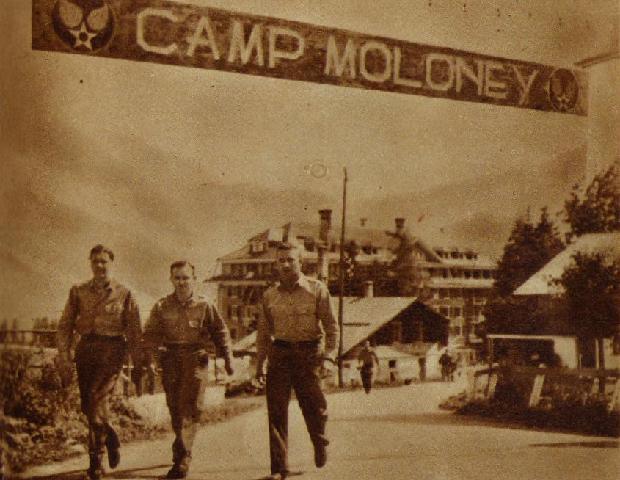
The B-17 F-85-BO Flying Fortress of the 8th Air Force, 100 Bomb Group, 351st Squadron, Serial No. 42-30057/EP-D with the nickname of « Raunchy » was ditched on a mission over Stuttgart in Romanshorn on the Lake of Constance on September 6th, 1943. The machine was being flown by First Lieutenants Sam R. Turner and Bill Freund. The bombardier Second Lieutenant Vance R. Boswell remembers: The German fighters ambushed us like a swarm of bees and we didn’t have a chance. At 300 meters and with only one engine left, we flew over Friedrichshafen and the Lake of Constance towards Switzerland. We couldn’t make it to the shore that would have saved us, but the lake landing was perfect. The B-17 broke in half, and, luckily, all of us were able to get out. The Swiss came immediately with boots to pull us out of the water. The ball turret gunner sergeant Joseph F. Maloney had already been fatally injured during the fight, and went down with the aircraft. The airplane was taken out of the water and scrapped in Switzerland in 1943. Sergeant Joseph F. Maloney was buried at the cemetery in Bad Ragaz on October 16th, 1943. In 1944 his corpse was moved to the American Cemetery in Münsigen (1944-1946), and then exhumated and buried at the American cemetery in Épinal, France. When the crew was detained in Adelboden, they called their hotel «Camp Maloney», a name that stuck until the War’s end. Adelboden was the first internment camp for American USAAF internees. At the beginning, all of the American USAAF internees were sent there, but soon more camps were set up, in order to detain a larger number of them. From then on, non-commissioned USAAF officers were detained in Adelboden or Wengen, and commissioned officers were sent to Davos. Adelboden is located in a deep valley in the Swiss Alps, south of Bern. It’s surrounded on three sides by steep mountains and a deep gorge on the fourth. Only one street leads to Adelboden, a summer health resort, which had to a large extent been empty during the War. This made it an ideal location to shelter internees and deter them from trying to escape.